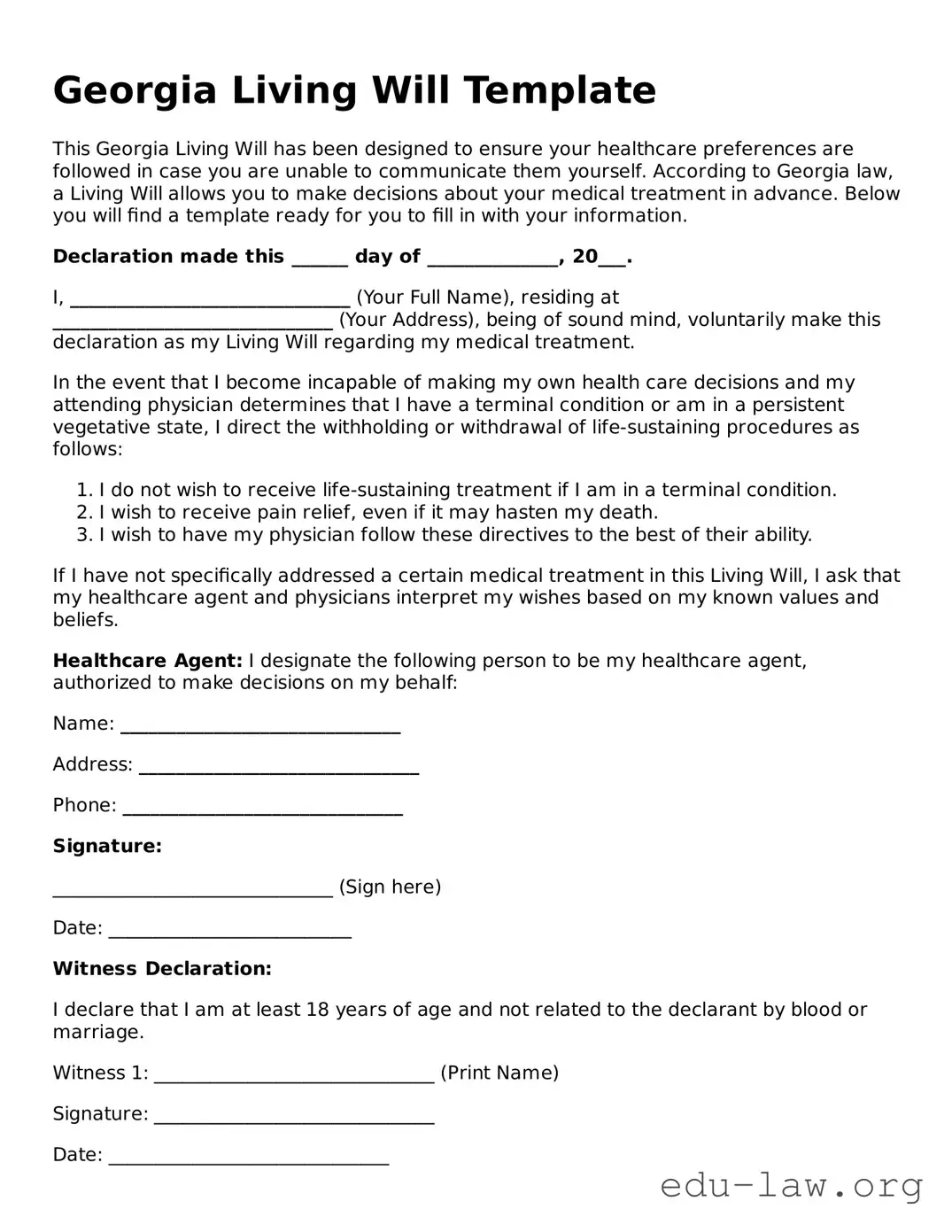Georgia Living Will Template
This Georgia Living Will has been designed to ensure your healthcare preferences are followed in case you are unable to communicate them yourself. According to Georgia law, a Living Will allows you to make decisions about your medical treatment in advance. Below you will find a template ready for you to fill in with your information.
Declaration made this ______ day of ______________, 20___.
I, ______________________________ (Your Full Name), residing at ______________________________ (Your Address), being of sound mind, voluntarily make this declaration as my Living Will regarding my medical treatment.
In the event that I become incapable of making my own health care decisions and my attending physician determines that I have a terminal condition or am in a persistent vegetative state, I direct the withholding or withdrawal of life-sustaining procedures as follows:
- I do not wish to receive life-sustaining treatment if I am in a terminal condition.
- I wish to receive pain relief, even if it may hasten my death.
- I wish to have my physician follow these directives to the best of their ability.
If I have not specifically addressed a certain medical treatment in this Living Will, I ask that my healthcare agent and physicians interpret my wishes based on my known values and beliefs.
Healthcare Agent: I designate the following person to be my healthcare agent, authorized to make decisions on my behalf:
Name: ______________________________
Address: ______________________________
Phone: ______________________________
Signature:
______________________________ (Sign here)
Date: __________________________
Witness Declaration:
I declare that I am at least 18 years of age and not related to the declarant by blood or marriage.
Witness 1: ______________________________ (Print Name)
Signature: ______________________________
Date: ______________________________
Witness 2: ______________________________ (Print Name)
Signature: ______________________________
Date: ______________________________
This declaration reflects my wishes and should be honored by all parties involved in my care.
